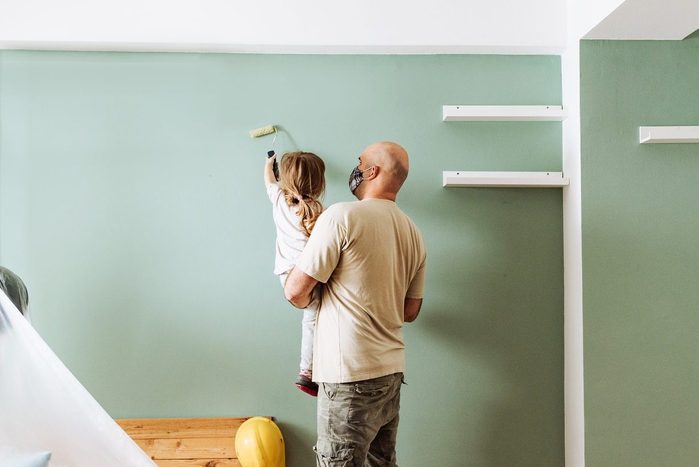
Home isn’t just a place to express your personal style or unwind after a stressful day. According to a 2022 study from researchers at De La Salle University in the Philippines, the interior design and organization of a space can positively—or negatively—impact your mental health.
As BetterHelp licensed marriage and family therapist Courtney Cope, LMFT, puts it: “Feeling safe, comfortable and confident in your living spaces is a worthwhile and valuable investment of your time that pays dividends in all areas of your life.” She adds: “Creating a space that is a reflection of yourself and [supports] your life is a tool that helps promote overall wellness and build confidence.”
Environmental psychologist Sally Augustin, PhD, says your home reflects who you are as a person, as well as what you value. So, it can be worth taking the time to curate a home that feels safe in every way and supports your mental wellbeing. These therapists offer their best tips for crafting a space to soothe your soul.
Get The Healthy @Reader’s Digest newsletter
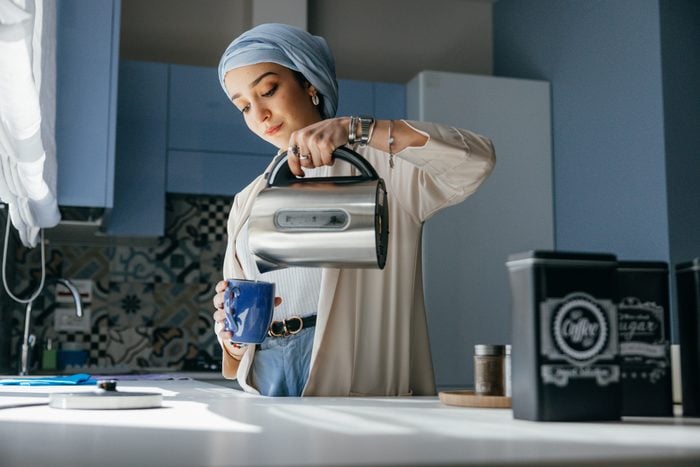
Surround yourself with cool colors
People with a blue background in their headshots are perceived as being more capable and competent, Augustin says, suggesting that you give this a try at home: whether you’re looking in a mirror or on a video call, observing yourself against a cool-colored background could give your confidence a lift.
The 16 Most Life-Changing Health & Wellness Books of 2022, Say Therapists and Readers
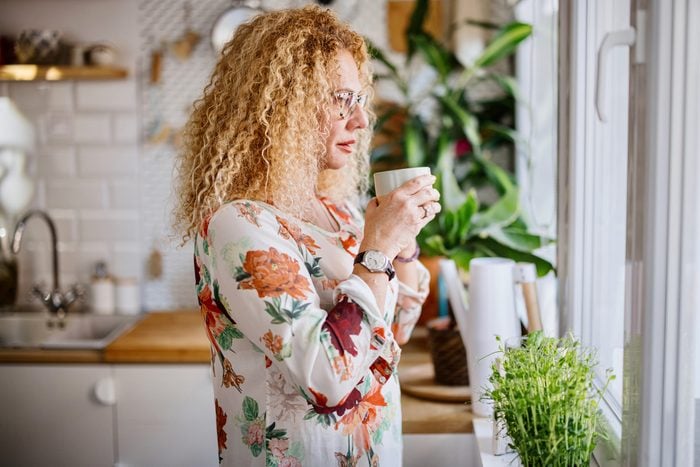
Look forward
Augustin points out something that can be natural to overlook: for many of us, reminders of disappointments aren’t particularly healthy for our spirits. Feel free to compost your dead plants, send rejection letters and bills to your trash and get rid of anything that reminds you of a breakup.
You might instead bring in aspirational items, like a yoga mat or a book about starting a business. Small items that are a reasonable first step toward a goal can be motivational.
Create the Ultimate Meditation Space: Mindfulness Experts Share 4 Easy Ideas
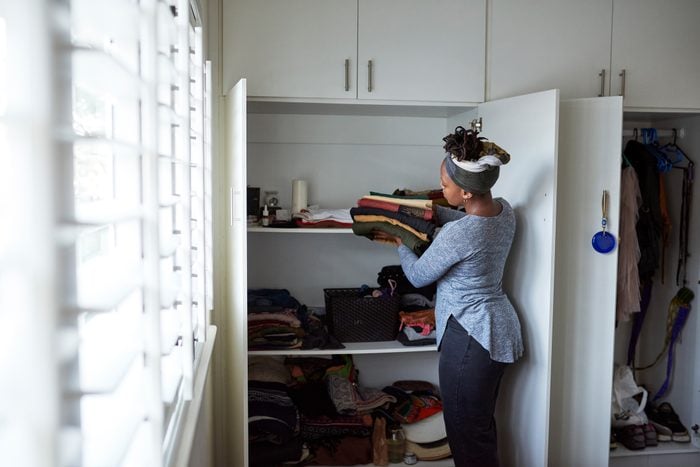
Clean up
A tidy home might energize you and bring a sense of pride. “You know, a lot of people don’t take the 10 minutes to clean it up, but they feel stressed every time they see it,” says Lisa Firestone, PhD.
If it helps you thrive, spend some time putting objects away and wiping down surfaces so your home reflects your best you.
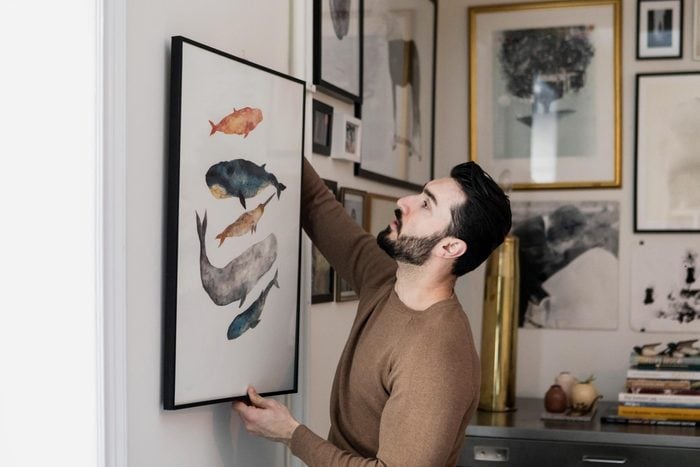
Choose décor carefully
To make the most of the connection between interior design and mental health, display décor or pictures that inspire you. It might be a reminder of an accomplishment, or pictures of your loved ones.
Just be careful about setting out too many mementos—for some, less is more. For example, “Introverts prefer a more carefully curated environment because they are more perceptive of what’s going on around them,” Augustin says.
If you want to give a room a new look, one trick is to box everything up then put things back one at a time. Start with your favorites…then when it feels like enough, stop. Putting out too many items can end up distracting you, or adding stress to a room.

Get a plant or pet
Caring for someone or something besides ourselves can help us feel useful. “I think the act of caring for an animal or plant can help give confidence or help us feel good about ourselves,” Firestone said.
If plants and animals aren’t your speed, try using your skills to do something for someone else. Consider baking cookies, mowing the neighbor’s lawn or organizing a community event.
The 8 Best Indoor Plants for Mental Health, Say Wellness Experts
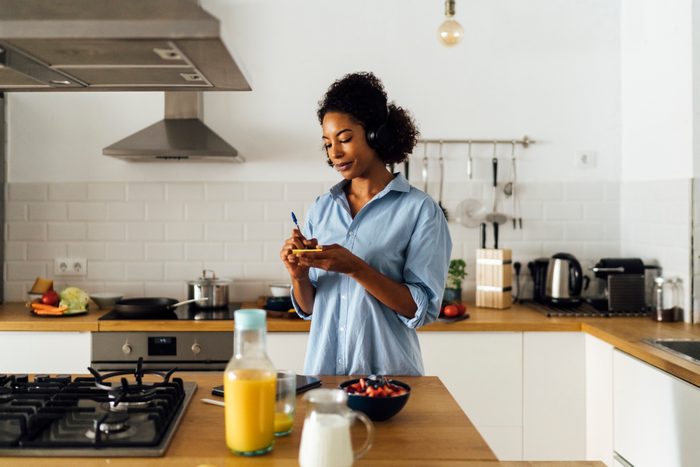
Set yourself up for success
Creating systems or memory tricks can help you feel like you have it all together, and streamline your routines. For example, always put your keys and wallet in the same spot.
“Make sure everything you would need for easily entering and exiting the house is within reach and has a designated space to live so that items do not go missing when you need them most,” Cope suggests.
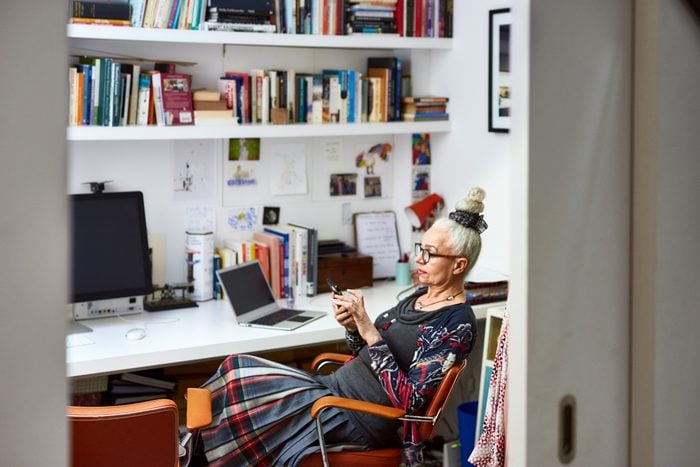
When you live with someone else
It can get tricky to use your home as your personal cheerleader when you share space. If don’t have your own bedroom or home office, see if you can create zones, Augustin says. For example, see if you can have a line of sight to your favorite things from your usual seat. If separate spaces aren’t possible, you’ll need to talk your differences out.
“Try to understand your partner,” Firestone said. “They have a valid perspective, too. It just might be different than yours.”
For more wellness updates, follow The Healthy on Facebook, Instagram, and Twitter. Keep reading:
